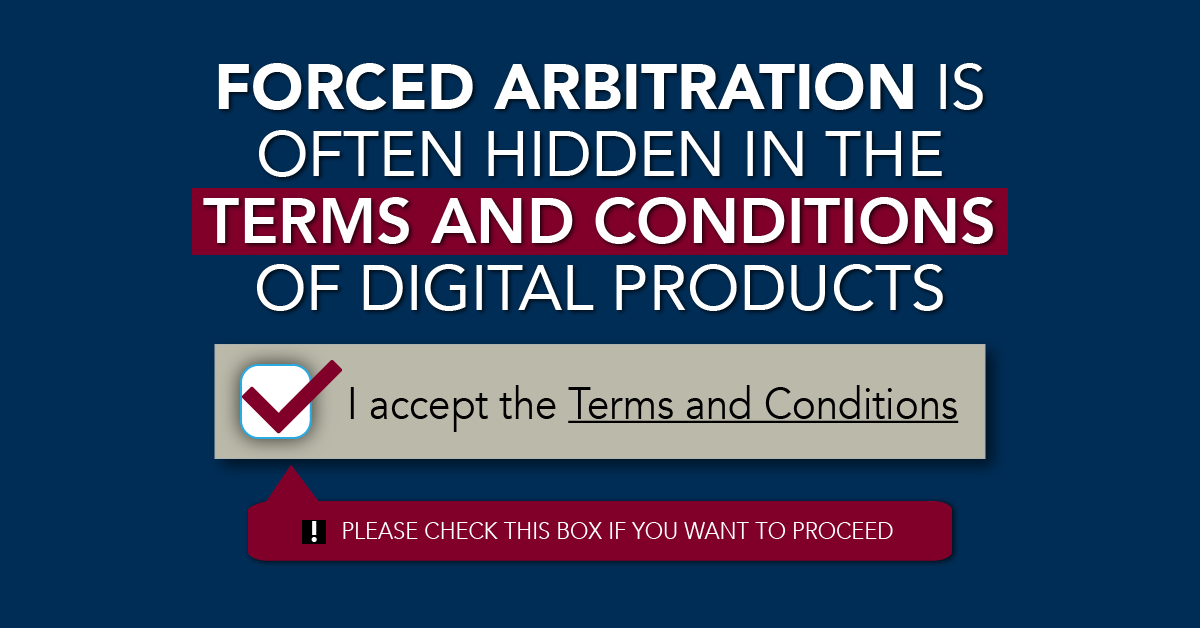
Impact Fund Statement on the FAIR Act
The Impact Fund strongly supports the Forced Arbitration Injustice Repeal (FAIR) Act.
The legislation would ensure that workers, consumers, servicemembers, nursing home residents, ordinary investors, and small businesses harmed by bad actors will be able to bring claims in court and not be forced into private, secretive, corporate-controlled arbitration systems required by nonnegotiable contracts. The legislation would also outlaw class action waivers, restricting the rights of individuals to organize together to pursue collective claims for such things as a pattern of workplace discrimination against women or people of color.
“Corporations use forced arbitration to silence sexual harassment survivors and discrimination victims, take advantage of consumers, and undermine public health. Hidden in the fine print of contracts and app agreements, forced arbitration clauses coerce victims into rigged, secretive hearings and give a green light to bad actors to continue their misconduct,” said Impact Fund Executive Director, Jocelyn D. Larkin, adding: “Forced arbitration enables corporations to break the law and never be held accountable.”
Forced arbitration is everywhere, a secretive process hidden in the fine print of the paperwork you fill out when you get a credit card, buy a cell phone, download an app, start a new job, or check into a nursing home. It means that when a corporation violates the rights of their workers or customers, they cannot enforce their rights.
Corporations know that most individuals will simply give up when faced with a forced arbitration; because the process is so rigged and kept secret, there is virtually no incentive for corporations to follow the law, or to quickly and fairly handle consumer or worker claims. It leaves American workers, consumers, and patients unable to enforce their constitutional right to hold law-breaking corporations publicly accountable.
If corporations know they won’t ever be held publicly accountable, our civil rights, as well as our public health and safety, are at risk. From the cars we drive, to the jobs we take, to the food we eat, any harm or misconduct can be kept secret.
“Until Congress acts to correct the legal fiction — that workers, consumers, servicemembers, patients, ordinary investors, and small businesses have consented to the deprivation of their rights — these clauses will continue to endanger individuals and small businesses,” concluded Larkin.
02.10.21
